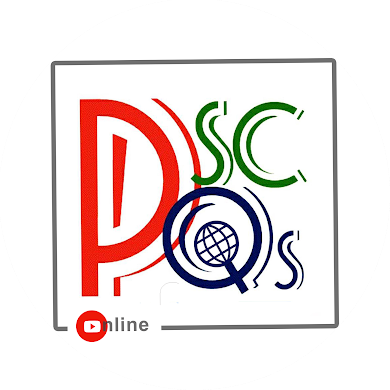Following are the questions and answer to the Higher Secondary School Teacher - Political Science in Education Department, examination conduct by Kerala Public Service Commission on 14-12-2015. We expect this will help the candidates who are preparing for the Higher Secondary School Teacher and other degree level exams. The purpose of this section is just to support the candidates who prepare for Kerala PSC and other competitive exams. You can always refer this website from your mobile phone on the go or from your home PC.
HSST - POLITICAL SCIENCE
Kerala Higher Secondary Education
PSC Exam held on : 14-12-2015
Kerala PSC Previous Year Fully Solved Question Paper | Year - 2015
SET - 4 | Questions : 61-80
61] The scope of public administration
[a] Depends on the values of the political framework
[b] Depends on the goals of the framework
[c] Depends on the values and goals of the framework
[d] Remains narrow
62] The emergence of 'New Public Administration' is associated with
[a] Minnow Brook Conference
[b] American Society of Public Administration
[c] Comparative Administration Group
[d] Scientific Management Association
63] Development Administration is related to
[a] Goal-oriented administrative system
[b] Action oriented administrative system
[c] Both (1) and (2)
[d] System oriented administrative system
64] The first coherent theory of organization is known as
[a] Bureaucratic Theory
[b] Scientific Management
[c] Human Relations Theory
[d] Classical Theory
65] The term scientific management was used for the first time by
[a] F.W. Taylor
[b] Max Weber
[c] Louis Brandies
[d] Elton Mayo
66] The term 'Representative Bureaucracy' has been coined by
[a] Martin Albraw
[b] Max Webber
[c] Karl Marx
[d] Donald Kingsley
67] Perspective planning refers to the formulation of
[a] Long term plans
[b] Short term plans
[c] Five Year Plans
[d] Medium range plans
68] The reforms in the monetary and banking policies of the country are called
[a] Budgetary Reforms
[b] Administrative Reforms
[c] Banking Reforms
[d] Financial Reforms
69] Herbert Simon's Model of decision-making is known as
[a] Disjointed Incrementalism
[b] Mixed Scanning
[c] Behavior Alternative
[d] Policy Science
70] Big Democracy is the work of
[a] P.H. Appleby
[b] D. Waldo
[c] H.A. Simon
[d] Elton Mayo
71] Who among the following theorists is associated with neo-realism in international politics?
[a] Hans Morgenthau
[b] Kenneth Waltz
[c] John Ruggie
[d] Barry Buzan
72] The 'authoritative allocation of values' was a concept given by
[a] Almond and Powell
[b] Lass Well
[c] David Easton
[d] Talcott Parson
73] The most important factor responsible for the globalization taking place is
[a] Economic Liberalization
[b] Political Liberalization
[c] Trade Liberalization
[d] Technological change brought about by relentless economic competition
74] The military alliances are formed on the basic concept of
[a] Co-operative security
[b] Collective security
[c] Comprehensive security
[d] Collective defense
75] Which one of the following non-governmental organizations is exclusively involved in human rights advocacy?
[a] Oxfam
[b] Caritas
[c] Ford Foundation
[d] Amnesty International
76] Which one of the following statement is not correct?
[a] Diplomats now get greater latitude than they enjoyed in 19th century
[b] Diplomacy is an instrument of foreign policy
[c] Diplomats do not play now as great a role in international negotiations as they once did
[d] Major international agreements are usually negotiated by foreign ministers
77] 'Agenda for peace' proposal is associated with
[a] Commonwealth of Nations
[b] League of Nations
[c] United Nations
[d] India
78] Which one of the following factors influenced the foreign policy of India?
[a] Geographical location of the country
[b] Plural character of the Indian society
[c] International environments
[d] All the above
79] Which one of the following has been main irritant in the relations between India and Pakistan in recent years?
[a] Kashmir Issue
[b] Growing intimacy between USA and Pakistan
[c] Growing intimacy between China and Pakistan
[d] Cross border terrorism
80] Which one of the following is the easiest method for the peaceful settlement of disputes between two states?
[a] Negotiations
[b] Good Offices
[c] Mediation
[d] Enquiry





0 Comments